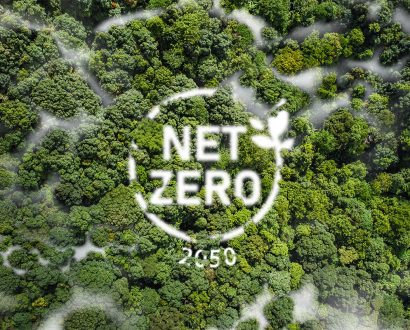Atlassian’s net zero trajectory is inspiring others to follow suit

The year 2050 can seem like a long way off, but from a scientific perspective, working toward this deadline to reduce carbon emissions was the timeframe highlighted in the 2019 Climate Action Summit.
Even with meeting this global target, a temperature increase of 1.5 degrees Celsius is still in the cards, not to mention rising sea levels, pollution and a string of other problems related to climate change.
While no-one has the answers as to the best route to achieving net zero emissions, sharing best practices and revealing stumbling blocks can go a long way toward getting there sooner.
The CEO Magazine sat down with Atlassian’s Head of Sustainability Jessica Hyman to discuss the company’s new corporate sustainability blueprint, Don’t F&*! The Planet, which is designed to accelerate the sustainability plans of other businesses.
Atlassian has long played an active role in delivering impact alongside making a profit, and this guide builds on the company’s ‘Return on Action Report 2021’. In the report, more than 60 percent of employees indicated wanting to see their employers taking a stance on social and environmental issues.
"We need to see every business set climate-related goals. And for us, it has always been about aligning with climate science, and that’s why we’ve set a science-based target to reduce emissions," she says. "We think that’s really what every business needs to be doing, but everyone’s going to choose their own path here."
Go fast, then go far

With the mindset of progress over perfection, Atlassian was able to fast-track its 100 percent renewable electricity goal by five years by separating short-term from long-term goals.
Energy Attribute Certificates (EACs) were purchased early on, with the view of stepping into a Virtual Power Purchase Agreement (VPPA) further down the track.
It’s a fine example of finding your north star and taking the first steps without raising any red flags, such as brand-jeopardizing headlines in the media. Simply taking action can also overcome the fear of delivering on ambitious promises that can hold companies back.
"If we had waited until we had perfect, which is a VPPA, we would’ve had the last four or five years where we weren’t even close to meeting that goal," Hyman explains. "So there is this way in which we’re allowing ourselves to take the right first steps and then build on that."
"If we had waited until we had perfect, which is a VPPA, we would’ve had the last four or five years where we weren’t even close to meeting that goal."
One of the conditions of meeting the science-based targets is not solely depending on carbon offsets, but rather demonstrating how you’re reducing emissions.
While imperfect, EACs led to easy wins in the beginning phase of climate action as part of a longer-term strategy. However, the nature of climate science keeps chief sustainability officers like Hyman constantly on their toes with their tentacles reaching far and wide across Atlassian’s internal departments.
"We have to have the vulnerability and the humility to know that we are certainly not going to get it right straight out of the gates every time," she says. "And when we find that there's new research that's pointing us in a different direction, to just own that and say, ‘Right, we now know more, and this is what we need to do.’"
Additionally, it’s not just the latest research that requires attention, but rather stakeholders’ expectations. While customers, employees and investors have voiced their concerns, regulators are the latest stakeholder putting pressure on companies to instigate change.
"I think that the newest stakeholder that is emerging is really regulators," Hyman affirms. "And that's in Australia, it's in Europe, it's in the United States."
Consequently, Hyman says there’s been an explosion in the regulatory environment that’s making companies on the fence about stepping onto the sustainability bandwagon think twice.
With leadership buy-in from Atlassian Founders Scott Farquhar and Mike Cannon-Brookes – who set the ambition – making sure that sustainability goals are aligned with the company’s business strategy has been instrumental in determining which areas require the most attention in a business context.
"For us, it's really been that focus on emissions reduction, for example, versus water or biodiversity, which are all really important issues. They're just less material for Atlassian's business," Hyman says.
More growth, more emissions
One of the biggest challenges for a business like Atlassian is striking a balance between hyper-growth and reducing emissions – a seemingly impossible scenario. Two key areas that posed the most difficulties were business travel and supply chains, which the company has less control over.
"It just means that we have to think differently about how we run the business and make those tough trade-off decisions, I think that's what the science-based target is really meant to drive," Hyman explains. "We have less control over our suppliers, so we're trying to influence them and take them along in this journey and get them to set their own goals."
While difficult to quantify, the work-from-home situation that businesses are navigating is yet another gray area in terms of measuring the carbon footprint of employees.
"We're currently purchasing energy attribute certificates for that electricity in the same way we would our building," Hyman affirms. "So the accounting standards I think will probably lag here, and we just wanted to do the right thing."
Befriending your company’s CFO
For Hyman, net zero goals and the projects that underpin them are always a collaborative affair – and perhaps the most salient player in the success equation is the Chief Financial Officer.
"The finance team, I would say, is our number one partner in all of this work. We are hip-to-hip with them, and they’ve really helped us think differently about how we go after these goals," she explains.
"There has not been a single project we have done in the sustainability space that has been run just by us."
Questions around the purchasing of renewable energy and long-term renewable energy agreements to a carbon offset investment portfolio and business travel policies have all been informed by the finance department, as well as Atlassian’s policy team, says Hyman.
"There has not been a single project we have done in the sustainability space that has been run just by us," she says. "Everything has been in collaboration with another team. And I mentioned finance to you, but the other big partner we’ve had is real estate and workplace experience."
Lead with opportunity
Every seasoned agent of change knows that bringing people on the journey toward positive change is ultimately about more than waving the flag of ambition, or settling for fear-based tactics.
"It is toeing that line that really motivates the team and puts everyone outside of their comfort zone, but just at a level where we have line of sight to how we’re going to get there," she says. "If you’re not feeling uncomfortable, I don’t think the bar is high enough. But you need to balance that with a level of comfort that you are authentically going after the goals."
"It is toeing that line that really motivates the team and puts everyone outside of their comfort zone, but just at a level where we have line of sight to how we’re going to get there."
While most of us feel temporarily uncomfortable when exposed to the image of a smoker’s lungs within an anti-smoking campaign, it’s debatable whether this approach leads to long-term change. The same can be said for a fear-based approach to motivate teams.
"I think the biggest lesson learned for us, and we talk about this in the guide, is that we sometimes used to lean on the risk side to motivate people. If we don't do X, Y will happen. And we realized that it’s not motivating," reflects Hyman. "And if we leaned actually into the opportunity side, we were really able to galvanize energy and support to get after it."
Whether you are a small, local company or a global empire, every business has its own set of challenges to grapple with – something which Atlassian doesn’t shy away from. And it’s this attitude that will be fueling the company’s operations, alongside 100 percent renewable energy by 2025.
"I think if everyone is in this game, we all win, so it’s something that we really welcome," concludes Hyman.